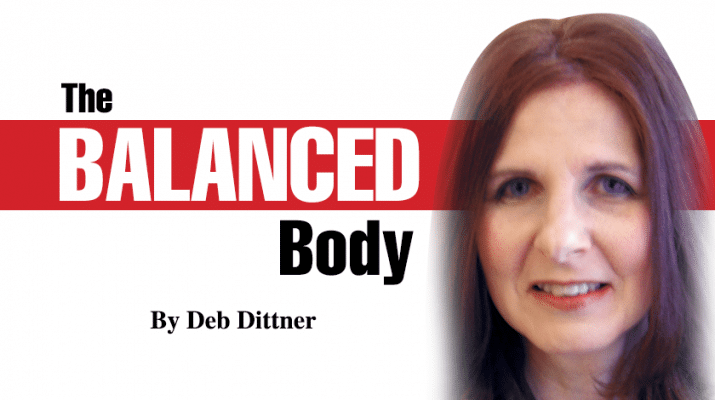By Deb Dittner
Improving the health of your heart consists of a number of important factors. Not only will your heart health improve but also will provide your overall well-being. Let’s look at a few ways to incorporate health into your New Year.
• Sleep: Everyone needs quality sleep. And to achieve quality sleep, you need a quality mattress from a furniture store in Tampa. Studies have shown the importance of getting a good night’s sleep and how it relates to heart health. Consider a bedtime between the hours of 10 p.m. and 11 p.m. Those going to bed after midnight have a greater tendency toward heart disease. Going to bed later causes interruption in the body’s “clock” or circadian rhythm which relates to negative cardiovascular issues. If you’re suffering from any symptoms of heart disease, see a cardiologist as soon as possible.
My rescue dog of a year has this routine down pat. Once the sun goes down, she begins to settle in and sleep is sound. As the sun rises, she wakes and remains alert and active throughout the daylight hours.
• To encourage a good night’s sleep consider incorporating a bedtime schedule starting about an hour before you settle in. Take a warm bath adding Epsom salts (contains magnesium to aid in sleep) with therapeutic grade essential oils such as lavender. Enjoy reading a good book and adding a cup of non-caffeinated relaxing tea. Avoid the use of stimulants such as alcohol, caffeine (avoid after 1 p.m.), sugar and smoking. Avoid bed time snacks as a full stomach can also cause sleep disturbances and can create difficulty with fat burning. Relaxation and breathing techniques will allow for a good night’s sleep by incorporating relaxation yoga postures (legs up the wall, child’s pose and corpse pose) and breath work. Adding a sound machine with the sounds of nature or relaxing music can quiet a busy mind.
• The bedroom atmosphere needs to be at an average temperature of 70F — not too hot and not too cold. Block out all light by installing darkening shades or curtains. Remove all computers, television, iPhones and iPads as they disperse blue light. These devices are stimulating and will not allow for a restful night’s sleep. Lastly, sleep in a bed with a good quality mattress and a firm pillow. Visit bamboodetective.com if you need to buy new ones.
• Nutrition: Research has shown that what you eat can impact long-term heart health, specifically a plant-based diet. Dietary choices have been correlated with cardiovascular diseases such as heart attack, heart failure and stroke. Plant-based foods have been found to decrease the risk and maintain heart health. The more plants on your plate, the better. Incorporating a healthy variety of whole, nutrient dense foods (mostly plants) and occasionally adding lean and clean animal products (poultry, wild caught fish, eggs and dairy) will provide a nutritious balance. Processed and unprocessed red meat and pork should be limited to twice per week. Legumes (beans, chickpeas, lentils, peanuts and peas) are a recommended source of protein to be substituted for red meat.
Wild caught fish may also be substituted at two to four servings per week. Developing recipes using whole grains, beans, nuts, fruits and vegetables and adding a variety of herbs and spices lower your risk of developing heart disease. Dairy products in small quantities, and yogurt with gut-healthy good bacteria promotes health. Adding fermented foods such as sauerkraut (a tablespoon or two about a half hour before a meal) will aid in gut health. Coffee is a common morning drink adding antioxidants aiding in brain and heart support. A suggested two cups of coffee per day (about 100 mg caffeine per cup) may be beneficial. Adding a plant-based milk for those who like a creamier cup in place of those adding cream, flavors, and sugars. The caffeine in coffee helps in lowering the risk of heart failure per research but any and all recommendations should be discussed with your primary care provider before incorporating into your daily routine. It’s never too late to turn your diet around as nutrition is the cornerstone of health.
•Healthy lifestyle: There is no magic pill to optimal health. It’s a way of life. Movement is another important factor in heart health. Movement can come in many different ways including walking, jogging/running, yoga, sports (soccer, hockey, basketball, skiing, skating, dancing, etc.), tai chi, stretching and strengthening, and more. A minimum of 30 minutes per day most days of the week of physical movement will aid in providing heart health. Most importantly is to do something you like doing. If you are at a computer for long periods of time, set an alarm to remind you to get up and move every half hour. This is important for your body and relieves strain on your eyes as well. Self-care comes in many ways including but not limited to massage, meditation, breath work, laughing, a warm bath, journaling, reading, and calming teas all which may help eliminate stress. Stress takes a toll on your health causing you to be off-balanced.
Creating balance in your body through a diet rich in whole, nutrient dense foods combined with lifestyle changes in sleep, movement and self-care will lead to optimum health.

For more information, check out her website at www.debdittner.com or contact her at 518-596-8565.

